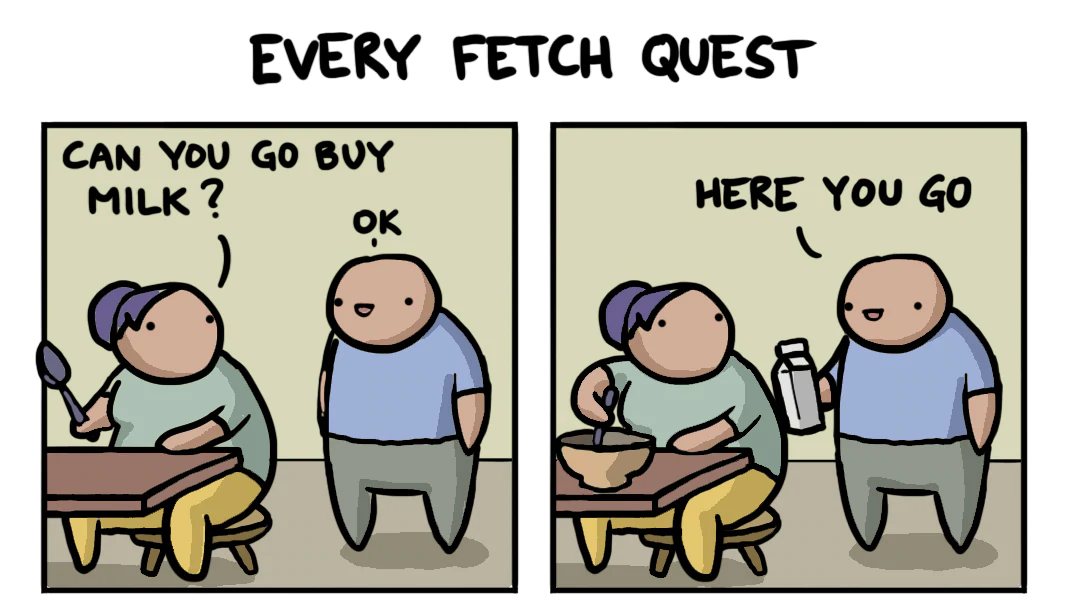Going on deliberate side quests

You may not have a clue as to what your main quest is and that's fine. It isn't something you get clarity on immediately, it comes with time. Before you can advance the overall narrative, you'll likely need to go on side quests to help you gain experience.
But if you're not intentional about them, side quests can turn into a grind aka the dreaded "fetch quest" dynamic common in role-playing games.
Avoiding the grind
Here's one way to think about doing side quests at work and the outcomes they could provide:

Early in your career doing anything will generate plenty of new experience but don't be fooled: you don't "need" to grind to level up.
The left side of the matrix feels like grinding or hustling. You can grind to build skills or to bring in money, sure. But for the level of effort you put in, I think you'll get lower tier rewards.
Instead consider moving to the right by being more deliberate to get upper tier rewards. This is the idea of deliberate practice I first heard from James Clear:
While regular practice might include mindless repetitions, deliberate practice requires focused attention and is conducted with the specific goal of improving performance.
When taking on work, you could be deliberate about it. I think the sweet spot for a career developer is building your own skills up in such a way that positively affects others.
A deliberate approach to working on your first project may be to start an internal blog on what you learn.
A deliberate approach to interviewing new team members may be to change the culture of your interviewing to focus on real-world problem solving.
A deliberate approach to doing yet-another-app-migration might be solving specific type of problem you've never dealt with and giving a talk on it.
Other ways to incorporate deliberate practice:
- Start saying No to things that won't move a needle for you
- Teach something you know well to others
- Propose better solutions to a perceived problem
- Avoid writing code that doesn't need to be written
- Proactively fix issues you know are causing pain
- Lead a project in a more advisory role than hands-on implementation
- Rotate to a different department, team, or business area
Sometimes you are limited by your circumstances but you may have more control than you think. Incorporating deliberate practice into your career makes you a more valuable developer.
You will build a reputation and body of work which will come in handy as you collect more gems to cash in later once you hit Math.ceil(career).
